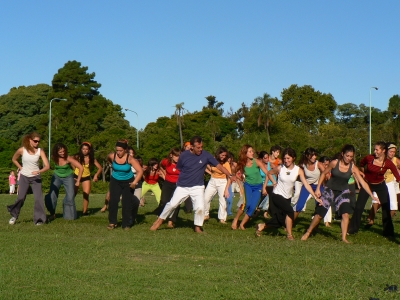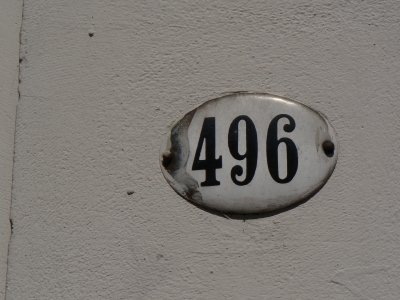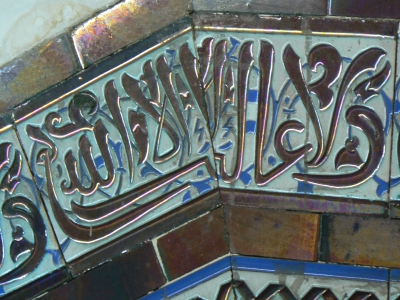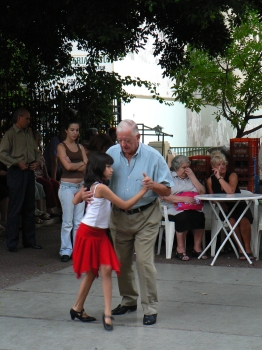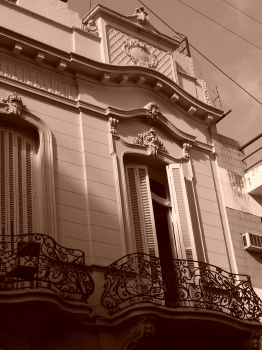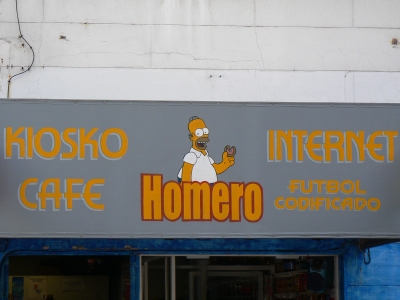|
 |
|
|
Travelog:
Argentina
Waterfall Wonderland Buenos Aires Magic Boots The Fitz! The Fitz!! Dances w/ Bicycles 1 Dances w/ Bicycles 2 Other Places: Brazil Chile Bolivia Peru Ecuador Colombia Venezuela New Zealand Austrailia Indonesia Cambodia Laos Myannmar Nepal Tibet China Iran Ethiopia Kenya Malawi South Africa |
Buenos Aires: Ni Olvida, Ni Perdón
Apr 12th, 2006
I'm sitting in a packed room of almost-straight chairs in a provincial government building in central Buenos Aires. The room hangs silent in anticipation of an old woman's words. She has paused for tears and to recover her voice. My friend Ruth brought me to a free screening of Garage Olimpio, a chronicle of a desaparacida (disappeared one). The lead character was taken from her home during the peak of the "dirty war" in 1976 by the military police to Olimpio, one of dozens of urban torture chambers. All but a random few were never found -- popular wisdom supposes they were drugged and then air-dropped into the ocean. After the screening, a 3-person panel: two are children of desaparacidos, and this woman, who inexplicably came back. Watching the matriarch relive electroshock torture and the whims of the despotic military police, I can't help but think how easy the desaparacidos would be to miss. After the Argentine financial crisis of 2002, BsAs has become a cheap tourist playground of tango and all-u-can-eat meat. With the glamour of Parisian balconies and cafes at a third the price, many visitors broadcast their glee onto a city that has suffered as much as flourished. Porteños, as the city's residents are known, are friendly after cracking the thin urban veneer. Like Ruth, many have been delighted to show me local bars or explain the wonderful tilework in the city's modern subway. But, too, there are problems. Still, a full 4 years after their Crisis, protesters bang on the locked gates of bank buildings. One woman lit small scraps of paper, tossing them at the building while a bank employee with a water-filled backpack discreetly extinguished them. The city's 30 and 40 year olds ponder their cohort's cultural vacuum, squelched by the military junta in control during the 1960s and 1970s. The movie has been shown tonight because Argentina is inaugurating a new national holiday to commemorate the inescapable fact that 30,000 people simply vanished 30 years ago. Ni Olvida, ni perdon -- never forget, never forgive. Like Israel, they're determined not to allow a sequel. In the little squares of the San Telmo barrio, a few banners hang next to the omnipresent white and periwinkle Argentine flag. Ruth thinks the holiday is a bit of a political sham, a favor by the government to curry favor and aggrandize itself by comparison. In the screening, we are conspicuously in the front row. Recalling how the young people she was tortured with became her children (she was about 40), she made several acute parallels to modern day political prisons, including our very own Guantanamo. Looking straight at me, the only gringo in the room, "we can't allow this to continue, not again." This is how the world views our military and our geopolitical activity. After talking, she sat quietly, resting on the weighty recollections and their transfer. The MC, clearly teary eyed, tried to field questions, but the room would not budge. Caught in the web of the memory, everyone had simply decided not to struggle for a little while, with the faith that the spider had fled. |
Snaps:
(All Argentina)
|
.gif)
